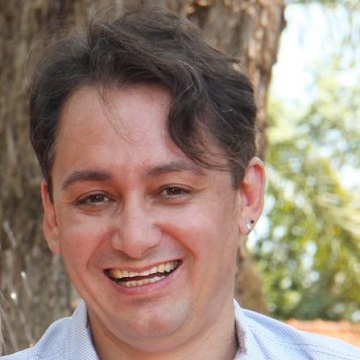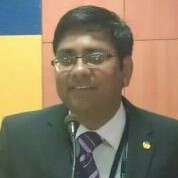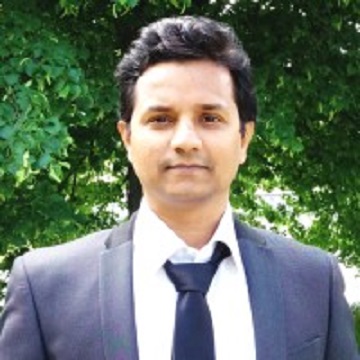Scientific Program
Keynote Session:
Title: Optimizing Nanobiosensor systems
Biography:
Accomplished Innovator: over 20 patents (granted & applied), vast systems experience in analog, digital, low power, mechanical, ultra low power systems for battery powered wearable / IoT / robotics.
And also an exceptional Leader / Team Builder: recruited, mentored, and directed diverse engineering teams (>50), managed /collaborated business operations in U.S., EU, and Asia.
Proven Track Record: pioneered world’s first +/- 50 ppm pMEMS stacked die oscillator, engineered world-class temperature sensors, and much more.
Entrepreneur: founded Andigilog and Salsa Semiconductor.
Passionate about bringing new technology and products to market.
Abstract:
Will update soon..
Title: Capacitive Biosensors for Molecular Diagnostics
Biography:
Paulo R. Bueno is a Material Scientist and Engineer, attaining a Master in Business and Administration and a Ph.D. in theoretical Physical Chemistry. Presently, he is a research director at São Paulo State University and the Head of the Physical Chemistry Department in this university. His main academic interest is focused on applications of electric and electrochemical spectroscopic methods aiming at understanding the physical and chemistry fundaments related to electron transfer and energy storage at the nanoscale. He has over 170 publications, 6 licenced patents and he is one of the founders of Osler Diagnostics, a spin-off company of the University of Oxford, in the UK.
Abstract:
Title: Lab-on-a-Chip Photonic Biosensors for rapid virus detection
Biography:
Will update soon..
Abstract:
Will update soon..
Title: Nanomaterials enabled futuristic sensors based on microfluidic platform
Biography:
Will update soon!
Abstract:
Microfluidic and sensors group at Amity Institute of Nanotechnology, Amity University, Noida is engaged in the development of new cost-effective point of care (PoC) devices for using them in connected health technology. The reduction of size in the microfluidic device has the advantage as lesser reagents and smaller sample volumes are required; and simultaneously open the door for rapid clinical diagnostic test. Our aim is to design a novel sensor comprising nanomaterials for variety of applications. Our study involves, a micro channel bend and carbon nanotube (CNT) pillars used in polymer based microfluidic devices (such as PMMA) for micro-particle filtration. We are working on advance sensor technologies to meet the societal demands. We have developed sensors for detecting micro-plastics in bottled water, pesticides from food chain, a sensor for detecting caffeine in hot and cold beverages, sensors for advance disease diagnosis have also been developed for detecting chikungunya, dengue, diabetes and cardiac bio-markers, all based on microfluidic platforms. We are also using cost effective screen-printed paper electrodes combined with paper based microfluidic channels. We have successfully developed a milk adulteration test kit which can be used for milk screening for more than 12 parameters, this technology has already been transferred to a company. Finally, we have also shown how these devices can be connected to global wireless networks for the development of robust connected health technology. Apart from carbon-based nanomaterials our group is also working on various other nano-hybrid materials.
Title: Ultra-precise Coupled MEMS Resonating Sensors for Biosensing Applications
Biography:
Vinayak Pachkawade currently is an independent researcher engaged in activities such as technology incubation, collaborations for R & D, peer networking, writing grant proposals, etc. He holds the Ph.D. in Engineering and Technological Science from the University of Liege. His current research interests include state-of-the-art fabrication methods to develop microstructures, transducers, and sensors for a range of applications in interdisciplinary research, potential CMOS-MEMS platform for sensor and electronics integration, etc.
Dr. Vinayak Pachkawade is the IEEE member and the reviewer for the IEEE journal and conference. He has received the best paper award (1st prize) at IEEE sensors 2012 in Taipei, Taiwan.
Abstract:
Will be update soo..






